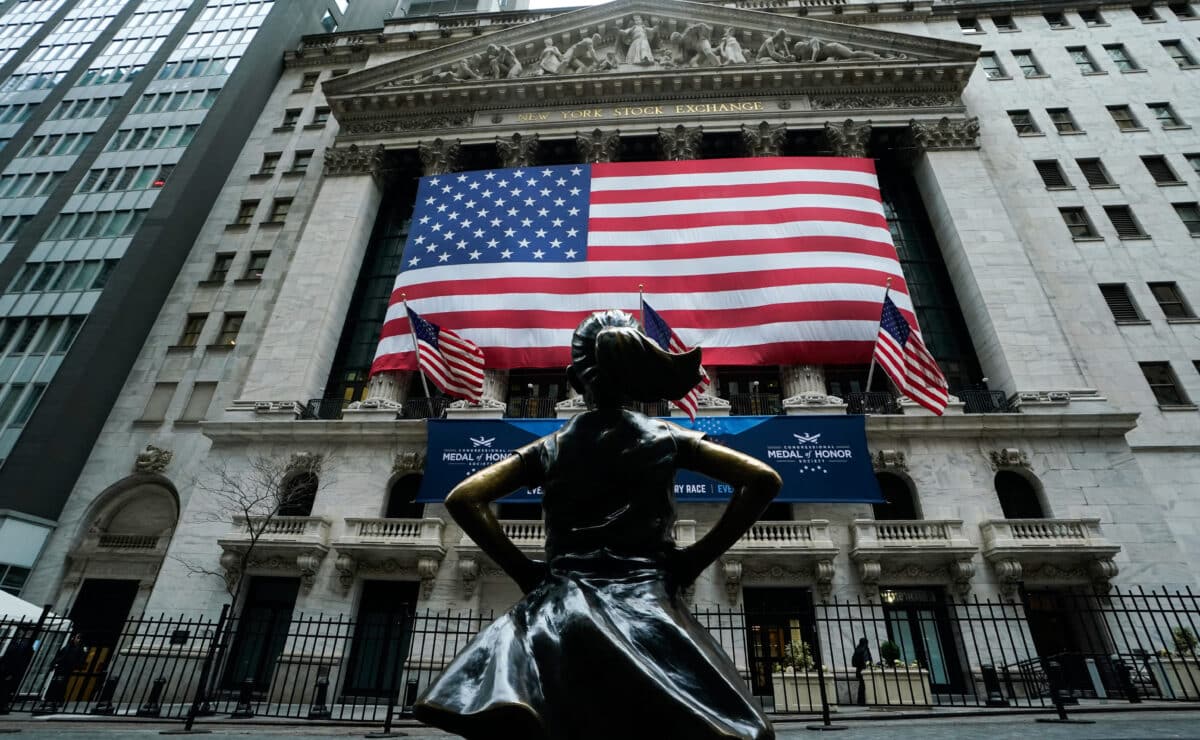US and European stocks gyrate on tariffs and growth

An American flag is displayed on the facade of the New York Stock Exchange (NYSE) on March 5, 2025, in New York City. (Photo by TIMOTHY A. CLARY / AFP)
LONDON, United Kingdom — US stocks fell Thursday as investors worried over the impact of tariffs on inflation and growth but eurozone equities advanced on a rate cut and spending optimism.
Wall Street’s main indices wobbled as President Donald Trump suspended most tariffs on Mexican goods for a month, while Canada may also get a similar reprieve.
READ: US stocks fall again as more Trump tariffs take effect
“Indices were trying to bounce off their earlier lows after Howard Lutnick, the US Secretary of Commerce, said that the tariff reprieve is likely to include all USMCA products,” said City Index and FOREX.com analyst Fawad Razaqzada, referring to the free trade agreement that links Canada, Mexico and the United States.
US stocks had bounced higher Wednesday after the Trump administration delayed tariffs on cars and auto parts imported from Canada and Mexico for one month.
Wall Street’s main indices still remained lower in late morning trading, however.
“Tariff confusion is garnering a good chunk of the blame for the negative disposition,” said Briefing.com analyst Patrick O’Hare.
“Underlying concerns about economic growth and earnings growth continue to fester and have tempered the market’s buy-the-dip conviction,” he added.
Investors were also looking forward to monthly jobs data that comes out on Friday to see if businesses are beginning to cut back on hiring.
In Europe, Frankfurt’s DAX index hit a new record as plans for a massive German defence and infrastructure investment programme stoke optimism for pulling the eurozone’s largest economy out of recession.
France and other eurozone markets ended the day higher after the European Central Bank followed through with an expected quarter-point cut in interest rates.
But ECB President Christine Lagarde said that rising trade tensions could knock eurozone economic growth.
“We have risks all over and uncertainty all over,” Lagarde added.
The ECB cut its growth forecasts for this year and the next while raising its 2025 inflation estimate.
Meanwhile, bond yields continued to climb, and the rise extended to Asia, with Japanese 10-year yields hitting 1.5 percent for the first time in more than a decade.
The increase signals expectations of higher inflation and that governments, companies and consumers will need to pay more to borrow.
Asia rises
Wednesday’s announcement of the tariff delay buoyed Asian stock markets, in particular lifting the auto sector.
READ: Asian markets rally on US tariff reprieve, possible China stimulus
The move “helped reinforce hopes there may be some flexibility in the new administration’s trade policy”, noted AJ Bell investment director Russ Mould.
Chinese stocks responded well to Beijing announcing its 2025 growth target of around five percent, at the start of its annual meeting of the National People’s Congress on Wednesday.
The meeting has heightened investors’ expectations that a huge fiscal stimulus package could be coming.
China has vowed to make domestic demand its main economic driver despite facing persistent economic headwinds, and as an escalating trade war with the US hit exports.